
I have been an avid fan of the work of creativity guru Edward de bono for a very long time, ever since I had started to acquire & read his classics, 'Mechanism of Mind', 'The Use of Lateral Thinking' &/or 'Lateral Thinking for Management', during the early seventies.
Later, I went on to acquire & read his 'Tactics; The Art & Science of Success', 'Six Thinking Hats', 'Teach Yourself How to Think', as well as 'Opportunities: A Handbook of Business Opportunity Search' in subsequent years.
For me, I have really considered them as great work, based on what I could take away, from the maestro.
I had even acquired & read his 'Serious Creativity', which I knew was more of an intellectual amalgamation of all his earlier works up to the nineties. I thought it would be a great refresher.
It did, at least to my pleasant delight. The last two books from him which I had read not too long ago were 'How to be More Interesting' & 'How to Have a Beautiful Mind'. Not bad.
As for most of his other works which I had the opportunity to read in the intervening & ensuing years, I can only say that I have been most ambivalent at best.
To my disappointment, half of the time, he was always talking about his previous stuff. The other half of the time, I have had to read about him moaning & groaning about other people hijacking his intellectual stuff, & yet he didn't bother to credit others before him - not at all - accordingly, let alone for all of us to get a chance to smell his bibliography.
Regrettably, 'Six Frames' is another example that happens, for me, to fall into this 'ambivalent' category.
In a nut shell, 'Six Frames' is supposed to be a deliberate & disciplined framework for one to think about information, from the standpoint of purpose, accuracy, point of view, interest, value & outcome.
From a tactical perspective, I see the 'Six Frames' as perspective windows, each represented by a simple metaphoric iconographic: 'Triangle', 'Circle', 'Square', 'Heart', 'Diamond' & 'Slab', respectively.
Fundamentally, I find that the author's premise is sound & valid, because as he argues, where you choose to direct your attention & what you choose to notice, can affect your information problem solving, so to speak.
My disappointment is actually with the author's treatment, which seems to be superfluous & pompous to some extent. If only he had made concerted efforts to help the reader to "see" ideas out of the "information", that would have given more added credibility to his offering.
That is to say, to teach the reader how to "provoke insight" from the swirling information around us, to paraphrase his terminology.
Also, I find that some of the worked examples in the book pertaining to the frames seem to be too perfunctory.
As a reader, I don't get the "provocative operacy", i.e. the skills of "making things happen" with the postulated frames from the author, to paraphrase once again his terminology.
From my personal perspective, thinking about information is often quite an easy task, but the action situation - putting the intent into performance, from theory to practice, so to speak - is rarely as simple as thinking. That score is, in fact, the essence of "provocative operacy".
Sad to say, I get the feeling that the author is trying to ride on the apparent success of his earlier 'Six Thinking Hats', 'Six Action Shoes', & 'Six Value Medals', by churning out this book on 'Six Frames'. Another sore point for me from this book is this.
The book has about 140 pages. About a third of each page, at the top, is occupied by each of the 6 iconographics. The sentencing & paragraphing of the book have also been deliberately spaced out by the publisher.
In reality, you get only about 50 pages of stuff, which therefore reinforced the quick impression of a perfunctory treatment.
Over the years, I have noticed that most of the de bono's stuff are essentially about the productive "philosophy of thinking" or "modes of thinking". That's to say, never tool-specific; one has to read his books thoroughly & diligently to get down to the brass tacks of application.
This book is no exception.
On the other hand, could it be that the author has already ran out of steam? I really don't know.
In fairness, I certainly want to point out that the framework as expounded in 'Six Frames' does in fact provide us with a quick way to run through incoming information with a critical eye, as to accuracy, bias, interest, relevance, value, etc.
At least, it can hold your initial attention to information that really matters.
For readers who are really keen to try out much better approaches to thinking about information with tool-specific suggestions, in order to deal with the info-glut in the 21st century, I recommend:
- the 'Big Six' from Michael Eisenberg & Robert Berkowitz;
- the 'Questioning Toolkit' from Jamie MacKenzie;
They may be slanted towards education &/or research, but with a little bit of tweaking, you can access their latent power.
For readers who want to explore "ideas through information", please read 'Ideas & Information: Managing in a High Tech World', by Arno Penzias. This book may seem dated as it was published in 1989, but its Chapter 5 is a real gem not to be missed.
Last, but not least, 'Surviving Information Overload: The Clear, Practical Guide to Help You Stay on Top of What You Need to Know', by Kevin Miller, is also worth exploring.
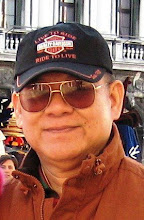


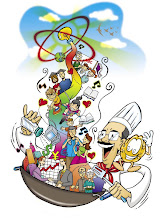
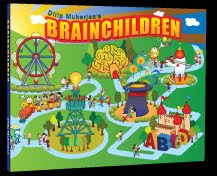



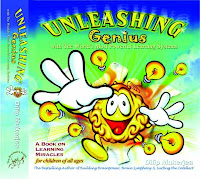
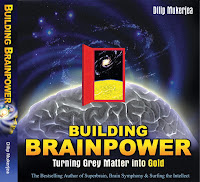
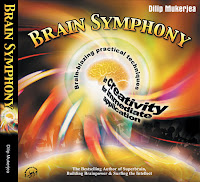





No comments:
Post a Comment